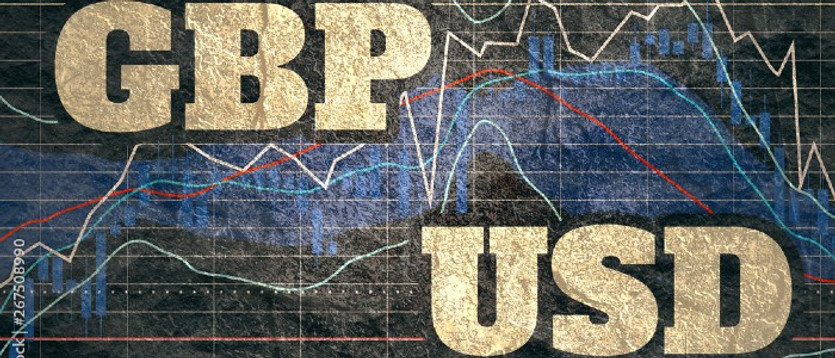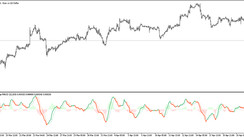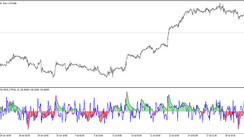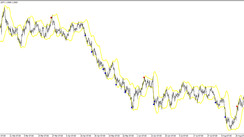One way or another, a very interesting and volatile trading week, which turned out to be rich in important economic events, is coming to an end, and June is moving into its second half.
The financial market continues to be in a fever. At once 4 largest world central banks (USA, Switzerland, Great Britain, Japan) held their regular meetings on monetary policy issues, and they, with the exception of the Bank of Japan, were able to surprise market participants.
Thus, the leaders of the Fed raised the interest rate immediately by 75 basis points, which exceeded the market's expectations of an increase of 0.50%. They also signaled further tightening of monetary policy, including more aggressive measures if the situation calls for it.
On Thursday, the Swiss National Bank also raised the interest rate on deposits to -0.25%, surprising investors and economists who had expected the interest rate to remain at the same level of -0.75%.
The head of the SNB, Thomas Jordan, noted that the Swiss franc is no longer highly overvalued due to the recent decline. The accompanying SNB statement also said that "tighter monetary policy aims to prevent inflation from spreading more widely in Switzerland." At the same time, the bank reserves the right to "intervene in the markets in order to stop the excessive strengthening or weakening of the Swiss franc."
The Bank of England also raised the interest rate, despite the recently received not very positive macro statistics from the UK, while the country's government faces the risk of slowing economic growth. Thus, the statistics released at the beginning of the week reflected the fall in the UK GDP for the second month in a row against the backdrop of a worsening external macroeconomic background: energy prices continue to rise, the end of the military conflict in Ukraine is not yet in sight, and sanctions pressure on Russia is growing, creating new risks for British and world economies.
Nevertheless, following yesterday's meeting, the Bank of England announced its decision to raise interest rates for the fifth time in a row in order to curb inflation. With 6 votes out of 9, the Monetary Policy Committee voted in favor of raising the rate by 25 bp. up to 1.25%; other members of the MPC pushed for a 50bp rate hike. Now the interest rate in the UK is at its highest level since January 2009.
In an accompanying statement, the Bank of England said it was ready to continue to act "strongly" to address the dangers of high inflation, above 11%.
Market participants reacted ambiguously to yesterday's decision of the Bank of England. The pound first sharply weakened, but then also sharply strengthened. As a result of yesterday's trading day, the GBP/USD pair rose by 68 points, although intraday volatility amounted to 365(!) points.
Today the GBP/USD is declining again, while the dollar and the DXY dollar index resumed growth.
For example, DXY futures are currently traded near 104.18, 98 points above yesterday's low.
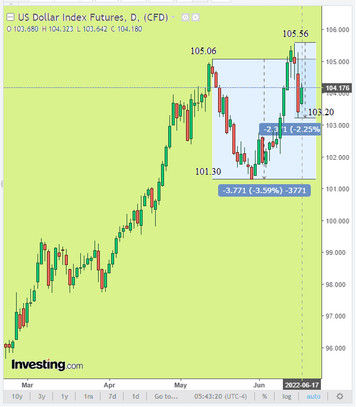
If the growth of the dollar continues, then, most likely, we should expect the resumption of the fall of the GBP/USD.
And today, the volatility in dollar quotes will increase again at 12:45 (GMT), when the speech of Fed Chairman Jerome Powell begins. He is likely to touch upon the topic of the Fed's monetary policy again, once again explaining the bank's decision taken the day before to raise interest rates by 0.75% and briefly outlining the prospects for the coming months.

